Why the West fears Bolsonaro could ignore Brazil election result
World Affairs Editor Kim Sengupta on widespread concern that Brazil’s president might cling to power and trigger a violent confrontation


To roars of approval from whipped-up followers, Jair Bolsonaro declared at a campaign rally: “This will end one of three ways, prison, victory or death – and I will not go to prison.”
Victory appears to be slipping from him as Brazil draws closer to election day. But behind the bombast, the hard-right president still has the power to unleash destructive forces that could seriously imperil the democratic future of South America’s largest nation.
Bolsanaro is trailing by as much as 17 percentage points behind rival candidate Luiz Inácio Lula da Silva in opinion polls. It means the leftist former president, more widely known as Lula, may win outright on Sunday by securing over 50 per cent of votes, avoiding the need for a second round on 30 October.
What happens after the results are declared will have huge and foreboding consequences for the region and beyond. There is widespread international concern that Bolsanaro, who revels in his moniker of “Trump of the Tropics”, will refuse to accept defeat and trigger a violent confrontation.
In the United States, the Biden administration has indicated it will move quickly to recognise the winner and the Senate has passed a resolution urging Brazil’s government to ensure a “free, fair, credible, transparent, and peaceful” election, warning that the US will review relations a regime that comes to power through anti-democratic methods.
From Europe, MEPs monitoring the election have asked Brussels to consider trade sanctions against Bolsanaro if he refuses to abide by the democratic decision and clings on to office. “We urge you to take additional steps to make it unequivocally clear to President Bolsonaro and his government that Brazil’s constitution must be respected and attempts to subvert the rules of democracy are unacceptable,” they wrote. “The EU should state that it will use different levers, including trade, to defend Brazil’s democracy and human rights.”
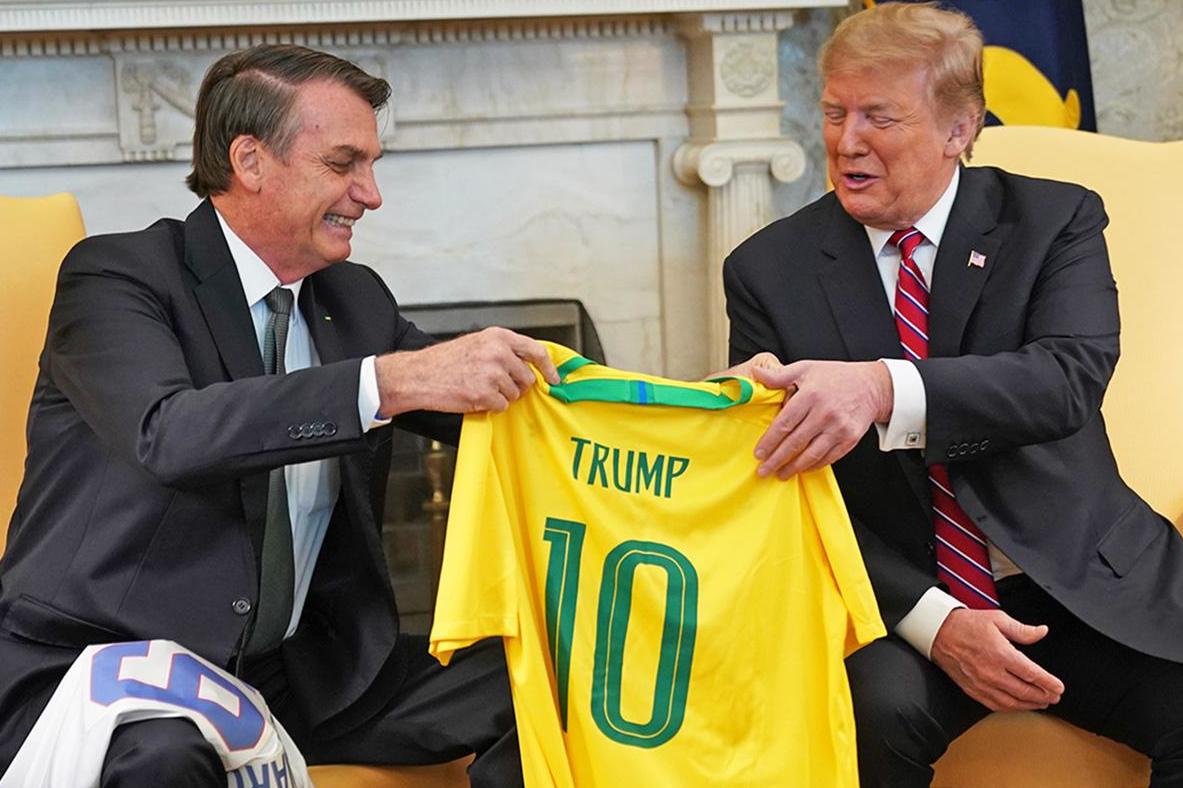
After a failed attempt to alter the electoral system last year, Bolsanaro ordered a military parade, including tanks, past the Congress in Brasilia – scenes not witnessed since the eras of military dictatorship from 1964 to 1985.
He also demanded that the military act as referee in the election. The Superior Electoral Tribunal (TSE) received a list of questions, from members of the armed forces on an election commission, on supposed vulnerabilities in the system but these were dismissed as unwarranted. The military has not sought another intervention. European and American politicians described Bolsanaro’s attempts to involve the military as intimidation.
Brazil’s incumbent president is not without foreign support. Donald Trump says he has his back. The former US President, who still falsely insists that he beat Joe Biden in the last US election, wrote on his social platform: “President Jair Bolsonaro and I have become great friends over the past few years for the people of the United States... He is a wonderful man and has my complete and total endorsement.”
Bolsanaro, claims Trump would often call him from the White House seeking advice on tax and customs cuts, trade renegotiations, and additional security measures “to put ‘the bad guys’ in jail”. One of the criticisms levelled against the Brazilian president is his record on human rights.
However, Bolsnaro’s support has fallen away in the wake of economic disarray and a catastrophic pandemic death total of almost 700,000 after he refused to accept Covid-19 was a serious threat or help local and provincial authorities take steps to prevent it spreading.
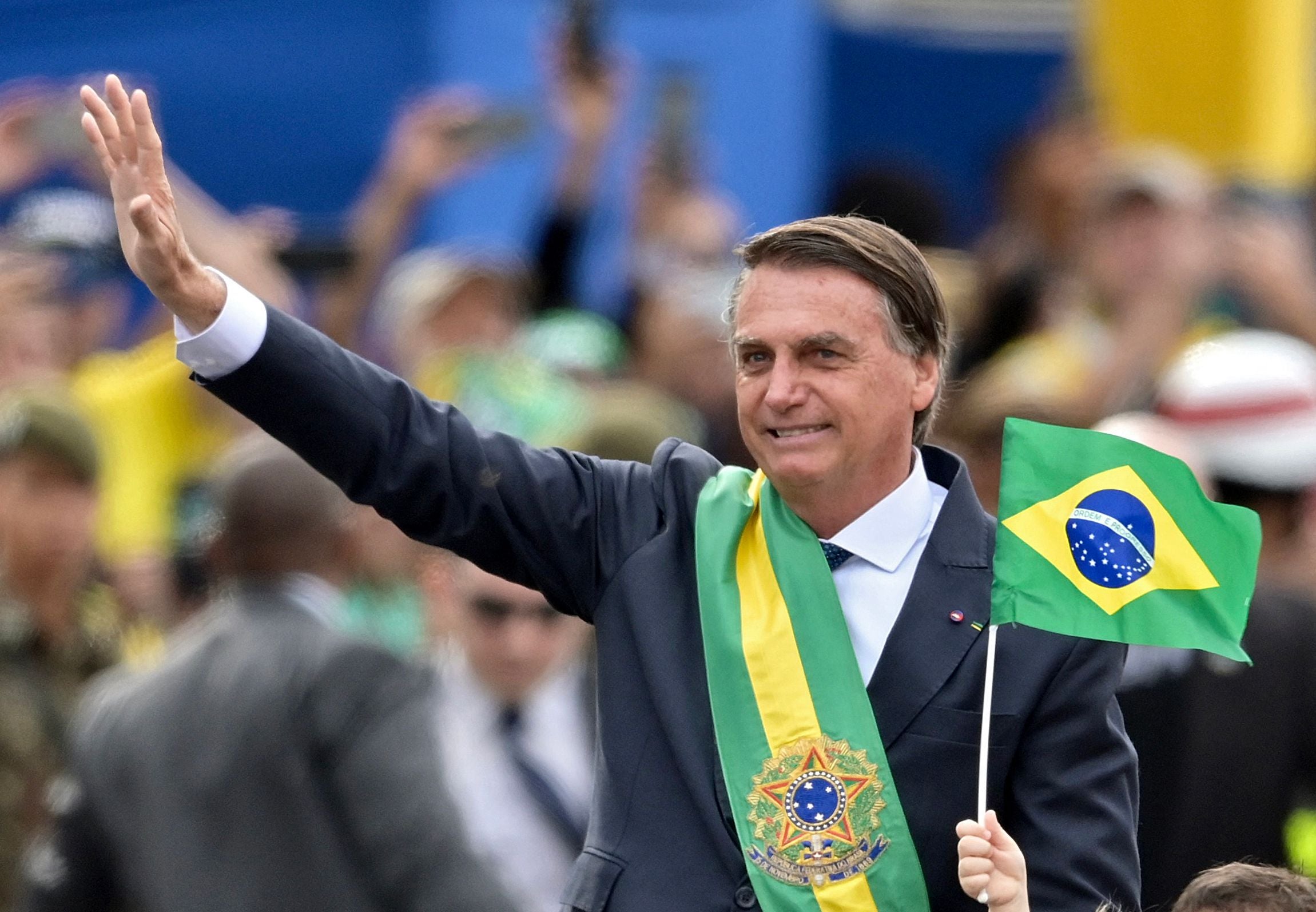
Bolsanaro’s time in office has also seen a sharp rise in government-backed mining, logging and fire clearances in the Amazon and a toxic political scene in which his opponents have been subjected to orchestrated attacks from his supporters and family members via fake social media accounts, some of which were secretly financed from public funds.
The approach to the pandemic also highlighted how Trump and Bolsanaro boasted of being kindred spirits. Against the advice of his own health official, the Brazilian president visited Trump in Florida and had dinner with him at Mar-a-Lago in March 2020 and came back with 22 members of his delegation testing positive. But everything was alright, Bolsonaro assured his cabinet because Trump had given him the cure for Covid – a box of hydroxychloroquine, the anti-malaria treatment. Bolsonaro subsequently fired his health minister, Luiz Henrique Mandetta, who had protested that relying on the drug for countering the pandemic was unscientific and dangerous.
Despite his lead in the polls, Lula’s advisors are cautious about predictions of an outright first-round victory. Bolsanaro’s rallies are still drawing sizeable crowds and anything less than a win by a large margin is very likely to lead to cries of “fix” from the president’s camp.
Bolsanaro’s team also have another election in mind as they strive to force the vote to a second round: the US midterms in November. They hope Republican gains in Congress would soften any punitive actions the Biden administration may take against their man.
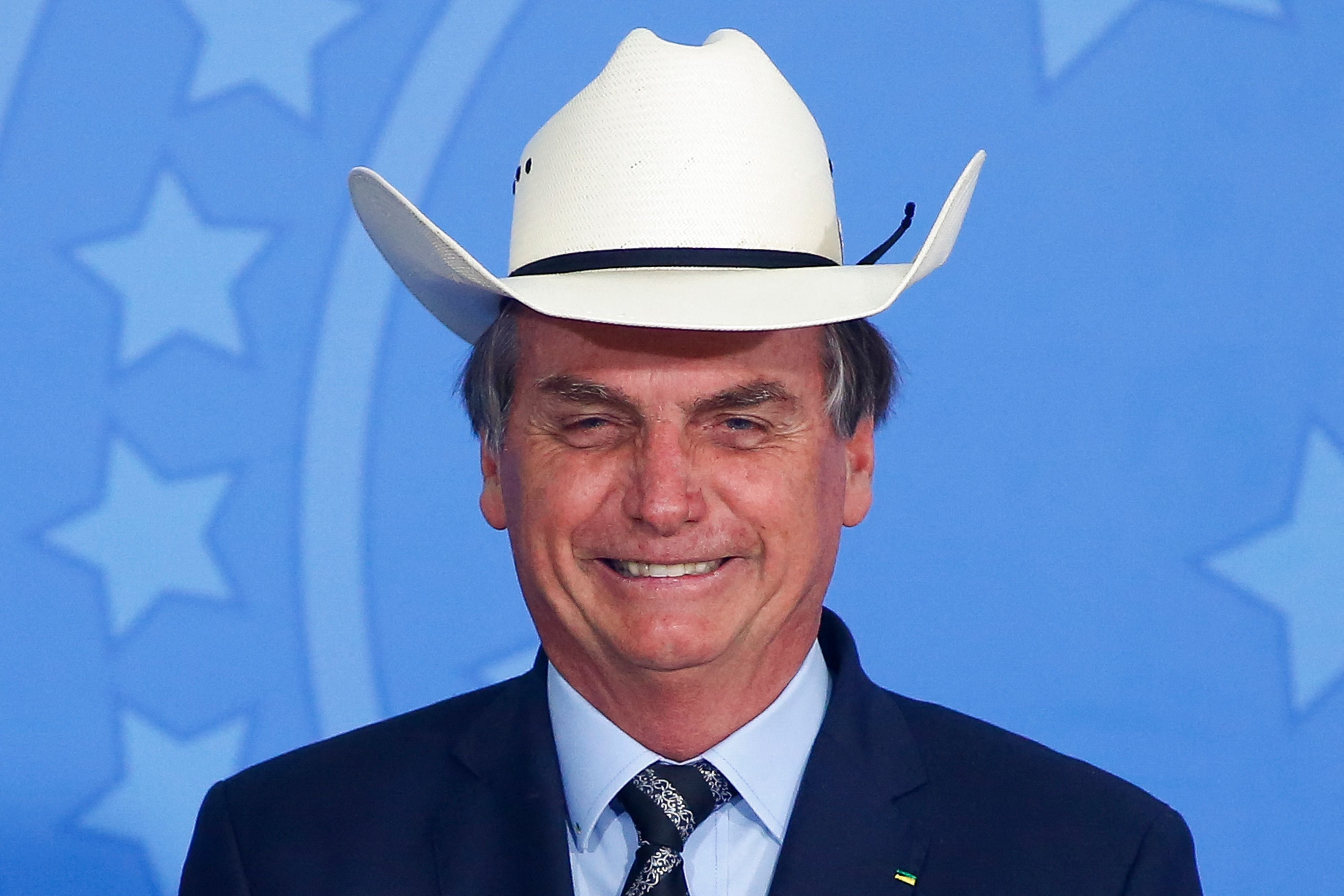
Liaison between the Bolsanaro camp and right-wing Republicans in America on a post-election scenario has been established. Steve Bannon, chief strategist for Trump who has been convicted of criminal contempt of Congress and is also being investigated for alleged fraud, has been one of the conduits.
Bannon has described the Brazilian election as the “most important of all time in South America”. He introduced Bolsanaro’s son, Eduardo, to conservative meetings in the US as “third son of Trump from the tropics”. The message of the “third son” to his audience has been that, if his father loses, it will be because the electronic voting system is crooked.
Bolsanaro himself has been carrying out some campaigning on overseas visits. While attending the funeral of Queen Elizabeth II he made a speech to a gathering of supporters from the balcony of the Brazilian ambassador’s residence in London, ending: God, fatherland, family and freedom.” He shrugged off complaints that he was disrespecting a time of mourning. Meanwhile, the Metropolitan Police detained peaceful anti-Bolsonaro protestors.
Lula introduced sweeping social reforms when he was president (he served two terms, from 2003-2010) and took measures to counter the deforestation of the Amazon that had begun under the country’s military regime and also to help the indigenous people of the region.
The 76-year-old former trade union leader sought a more active role for Brazil on the international stage on matters such as climate change and the Iran nuclear deal. Former president Barack Obama called him “one of the most popular politicians on earth” and considered proposing him as head of the World Bank.
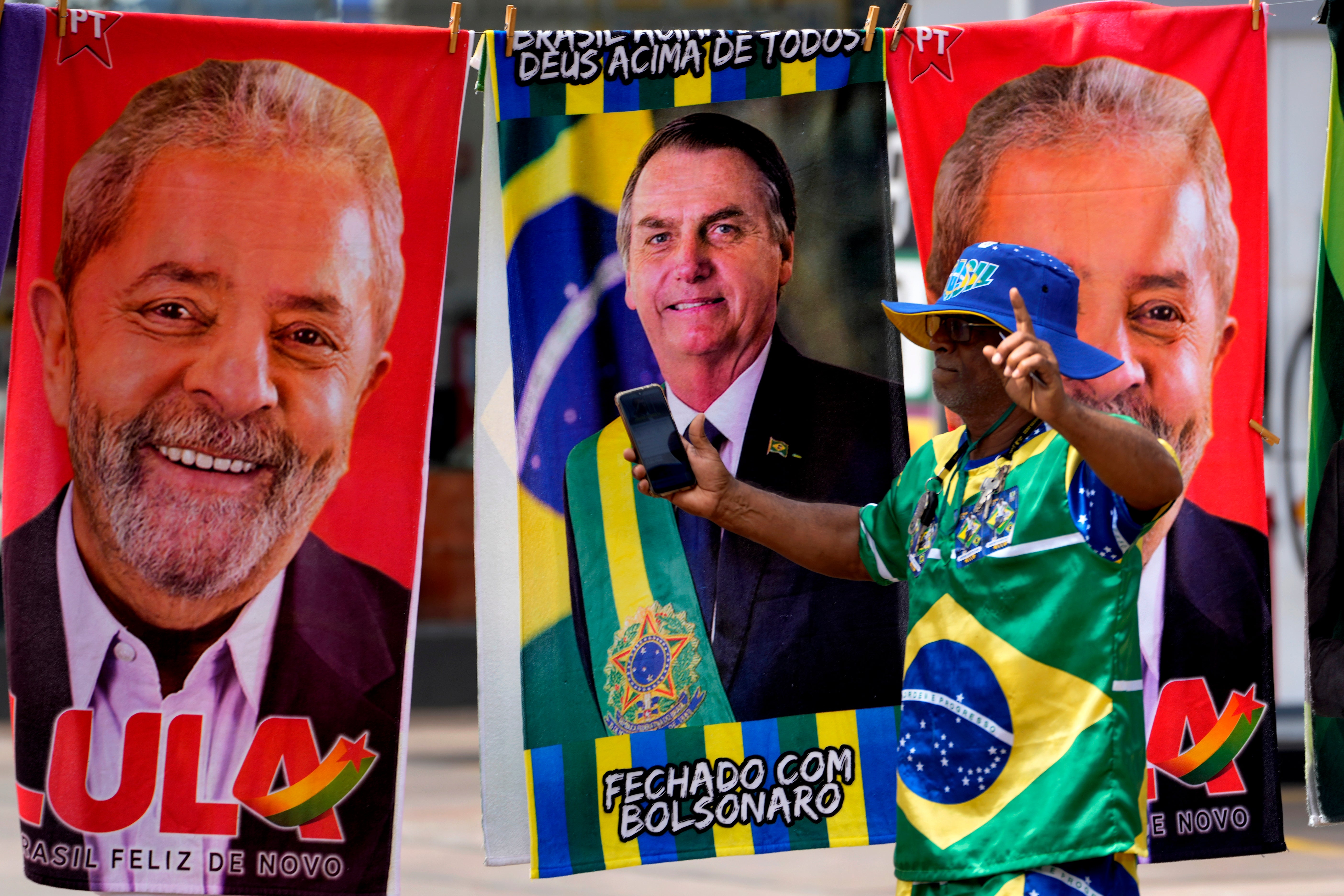
Lula left office with an approval rating of 80 per cent and was succeeded by his former chief of staff Dilma Roussef, but in 2017 he was convicted of money laundering as part of an extensive investigation into public corruption, and sentenced to nine and half years in prison.
His trial was controversial, with accusations of politically-motivated prosecution. The judge, Sergio Moro, later became justice and public security minister in the Bolsonaro government. Lula spent 580 days in jail and his attempt to stand in the 2018 presidential election was blocked.
In a series of judgments from 2019 to 2021, Brazil’s supreme court quashed Lula’s conviction, released him from prison and ruled that Judge Mora had shown bias at the trial and that court did not have jurisdiction in the case, thus Lula was allowed to run in the current election.
As well as talking about the economy, poverty and social justice on the campaign trail, Lula has focused on the environment – acknowledging its impact as an international as well as domestic issue – and the fate of the Amazon, “the lungs of the planet”.
Bolsonaro has accused the West of trying to prevent Brazil from enriching itself from the Amazon. He has vowed in the past not to give indigenous people “one more square centimetre of land” and has opened up indigenous areas to commercial exploitation. As president he made 593 regulatory changes linked to the environment in just one year.
The planet “needs special attention from all of us,” Lula told an audience in Manaus, the biggest city in the Amazon. “We need to look after our forest, our fauna, our water, but most of all, we need to look after our people because they’re struggling, they’re in need and they need to live with dignity. We can reclaim this country, it’s possible to once again walk with our heads held high."
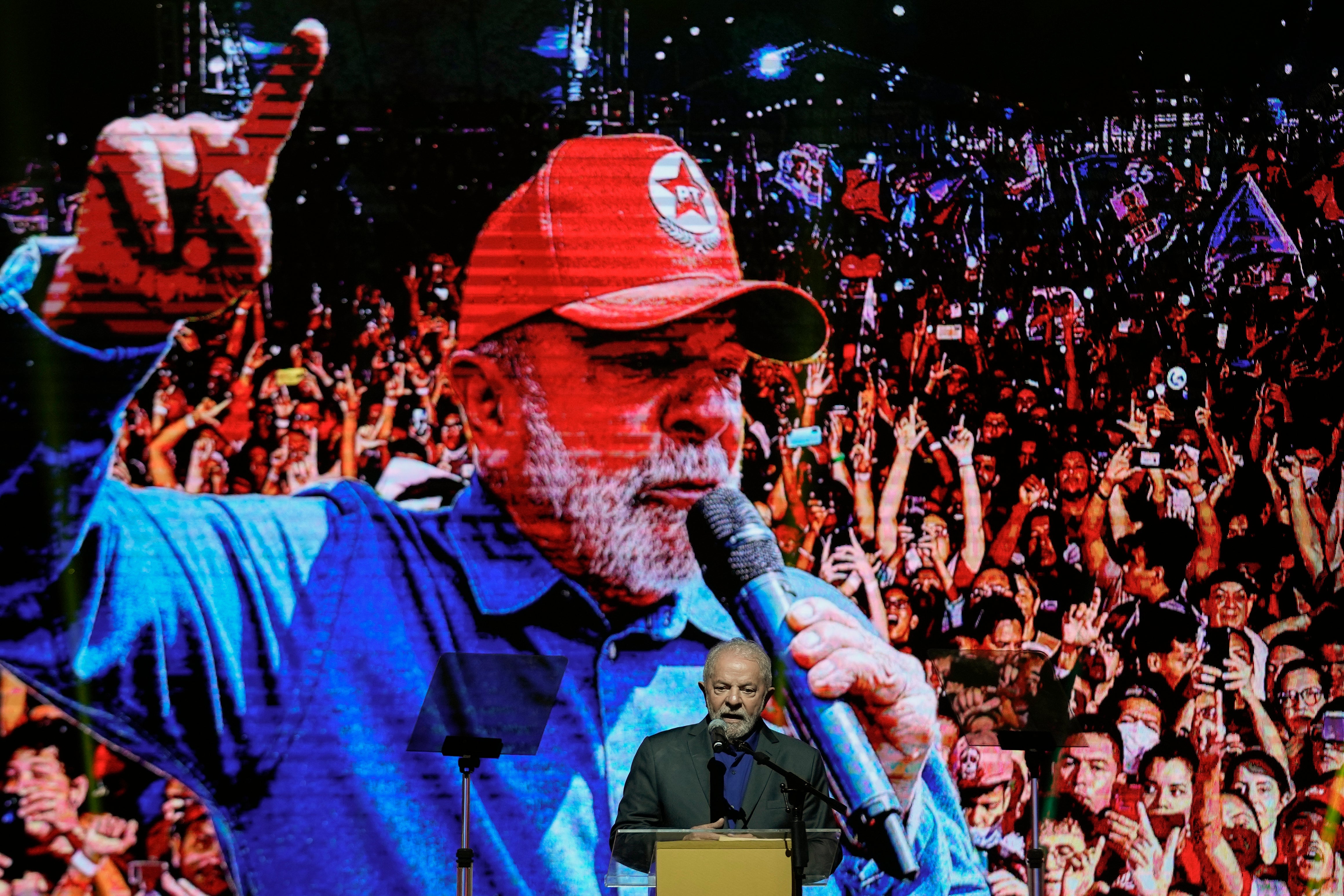
At another meeting, speaking about the murders three months ago of Dom Phillips, a British journalist, and Bruno Pereira, an indigenous analyst while investigating illegal exploitation of the Amazon, Lula told the BBC: "Deaths [like that] of Dom Phillips and Bruno Pereira can’t ever happen again,. Brazil needs to be transformed into a civilised country, it can’t fall victim to inhumane people. I am convinced that we need to change Brazil – and changing Brazil means having a government that assumes responsibility for really caring for people.”
Large-scale violence feared ahead of Sunday’s vote has not materialised, although fights resulting in a small number of deaths have been reported. The mood of the electorate in the closing days of the campaign remains polarised with the apprehension of what lies ahead.
Beatriz Oliviera, 48, bringing up three children as a single mother in Sao Paolo, had no doubt about the gravity of the situation.
“Bolsanaro is ruining the country, all the gains made by the poorer people under Lula are vanishing, we are living in really poor conditions. This is a second chance under Lula, but I don’t think Bolsanaro will accept his loss, he’ll try tricks. That is what we are so worried about,” she said.
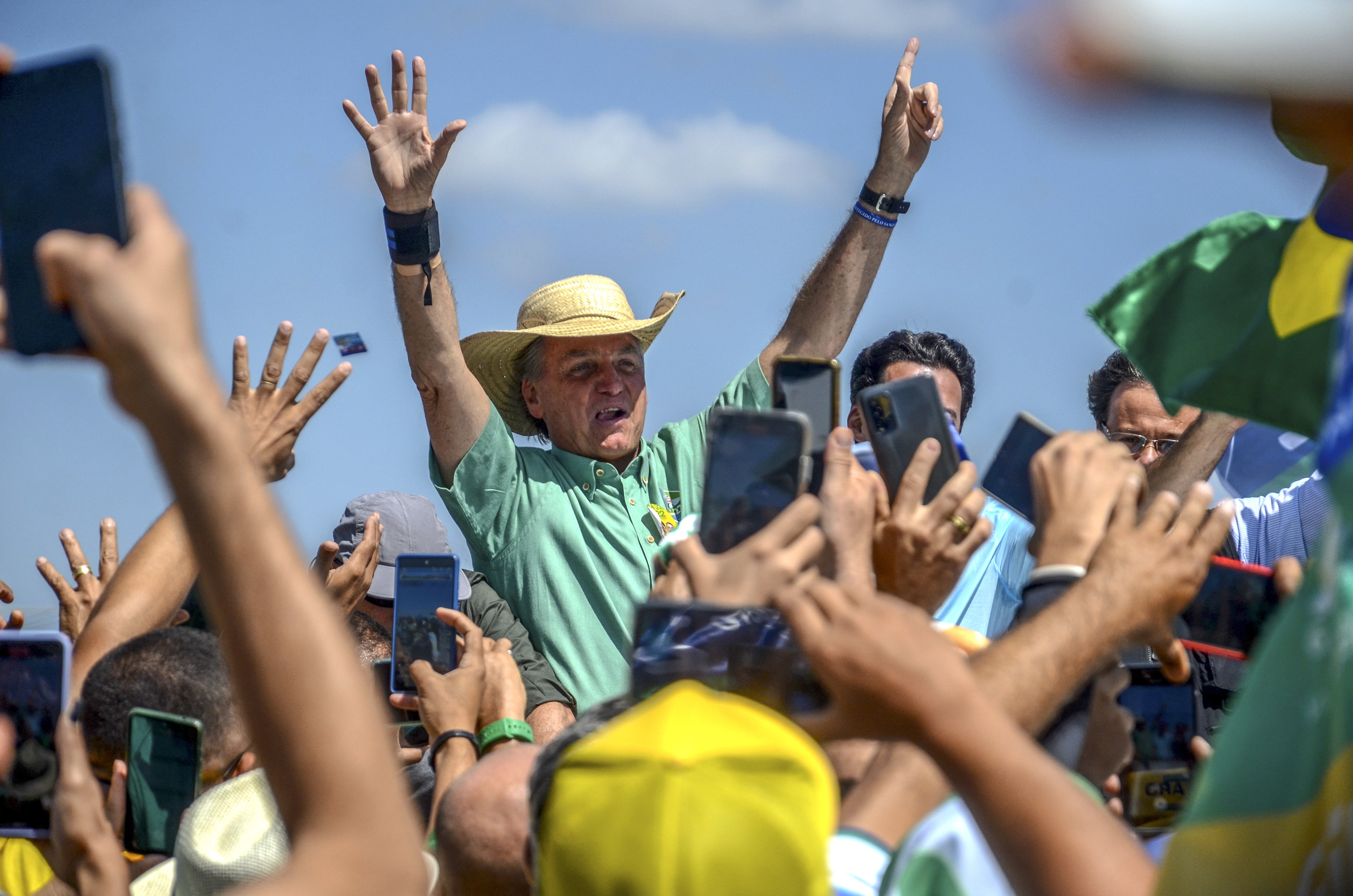
Indigenous candidates have targeted some of Bolsonaro’s support bases. Joenia Wapichana became the first indigenous woman to be elected to Congress in 2018. Others from the community are now following in her footstep.
At Wapichana’s constituency in Roraima in the Amazon region, one of her campaign workers said “ Bolsanaro and his people are trying to disappear us, they want us to go. I think he said once that he wished we had been wiped out like the indigenous people in the US. That is what we are fighting against.”
Mariana, who did not want her family name published, continued “ we see the election as a way of getting ourselves heard, it’s going to be a tough fight to stop the illegal mining, fishing and the taking of our trees. These people are very powerful.”
Die-hard Bolsonaro followers believe their leader is being unfairly vilified. Some hold that Europeans and North Americans want to keep Brazil poor. Joao Magalhaes, a businessman in Rio, said: “When did the Amazon become international property? What we are trying to do there is to have conservation but also make use of minerals and other materials which will benefit all Brazilians. It is unfair of foreign governments trying to pressure us.
“There was a lot of corruption with Lula’s people. They have freed him, but a lot of his people have made a lot of money, that’s why so many people voted for Bolsanaro the last time. We think he’s honest.”
But Magalhaes has doubts about Bolsonaro, even if he does vote for him. “His behaviour during Covid, what he was doing, what he was saying, was strange,” he said. “I think he let us down there, that troubles me.”
Join our commenting forum
Join thought-provoking conversations, follow other Independent readers and see their replies
Comments
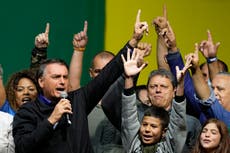
Bookmark popover
Removed from bookmarks